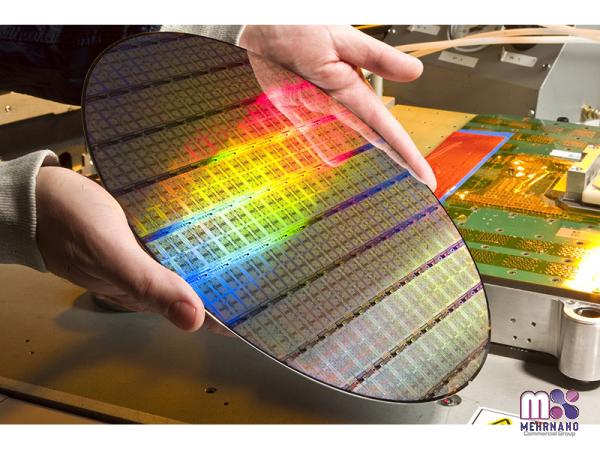Nano materials represent a truly revolutionary field of study that has the potential to redefine various industries and pave the way for groundbreaking innovations. With properties propelled by their nano-scale size, these materials possess unique characteristics that can significantly enhance the performance of products and contribute to sustainable development. In this article, we will delve into the exciting world of nano materials and explore their limitless possibilities for business advancement. 1. Understanding Nano Materials: Nano materials are substances engineered at the molecular or atomic level with specific properties and applications. They possess unique properties such as improved strength, conductivity, reactivity, and optical properties due to their tiny size (typically less than 100 nanometers). These materials can be categorized into nanoparticles, nanocomposites, nanocoatings, and more, depending on their structure and purpose.
.
 2. Advantages of Nano Materials for Business: a) Enhanced Performance: Nano materials offer a range of advantages, including increased strength and durability, improved electrical conductivity, enhanced optical properties, and heightened chemical reactivity. These attributes enable businesses to create superior products, leading to improved customer satisfaction and increased competitiveness. b) Environmental Sustainability: Nano materials have the potential to contribute significantly to environmental sustainability efforts. For instance, nanotechnology-enabled solar cells increase the efficiency of energy conversion, while nano catalysts reduce waste by enhancing the efficiency of chemical reactions. By adopting nano materials, businesses can align themselves with eco-friendly practices and promote a greener future. c) Lightweight and Cost-effective: Many nano materials are lightweight, making them ideal for applications where weight reduction is crucial, such as the aerospace industry. Additionally, nanomaterials production processes are becoming more cost-effective over time, which can help businesses reduce expenses and improve profitability.
2. Advantages of Nano Materials for Business: a) Enhanced Performance: Nano materials offer a range of advantages, including increased strength and durability, improved electrical conductivity, enhanced optical properties, and heightened chemical reactivity. These attributes enable businesses to create superior products, leading to improved customer satisfaction and increased competitiveness. b) Environmental Sustainability: Nano materials have the potential to contribute significantly to environmental sustainability efforts. For instance, nanotechnology-enabled solar cells increase the efficiency of energy conversion, while nano catalysts reduce waste by enhancing the efficiency of chemical reactions. By adopting nano materials, businesses can align themselves with eco-friendly practices and promote a greener future. c) Lightweight and Cost-effective: Many nano materials are lightweight, making them ideal for applications where weight reduction is crucial, such as the aerospace industry. Additionally, nanomaterials production processes are becoming more cost-effective over time, which can help businesses reduce expenses and improve profitability.
..
 3. Applications of Nano Materials: Nano materials have a broad range of applications across multiple sectors, including: a) Electronics and Optics: Nano materials are extensively used in the electronics industry to improve chip performance, increase data storage capacity, and enhance display technologies. They are also utilized in optoelectronic devices, contributing to advancements in efficient lighting and solar energy. b) Healthcare and Medicine: Nano materials are revolutionizing the healthcare industry. From drug delivery systems and targeted therapies to diagnostic devices and bioimaging, these materials offer unprecedented opportunities for improved treatments and diagnostics. c) Energy and Environment: Nano materials are employed in energy storage technologies, fuel cells, and energy-efficient coatings. They can improve battery performance, facilitate efficient hydrogen fuel production, and enhance solar energy conversion.
3. Applications of Nano Materials: Nano materials have a broad range of applications across multiple sectors, including: a) Electronics and Optics: Nano materials are extensively used in the electronics industry to improve chip performance, increase data storage capacity, and enhance display technologies. They are also utilized in optoelectronic devices, contributing to advancements in efficient lighting and solar energy. b) Healthcare and Medicine: Nano materials are revolutionizing the healthcare industry. From drug delivery systems and targeted therapies to diagnostic devices and bioimaging, these materials offer unprecedented opportunities for improved treatments and diagnostics. c) Energy and Environment: Nano materials are employed in energy storage technologies, fuel cells, and energy-efficient coatings. They can improve battery performance, facilitate efficient hydrogen fuel production, and enhance solar energy conversion.
…
 4. Potential Challenges and Future Outlook: While the potential of nano materials is immense, their commercialization faces various challenges, such as regulatory compliance, health and safety concerns, and public perception. However, ongoing research and development, coupled with concerted industry efforts, are paving the way for addressing these challenges and unlocking the full potential of nano materials. In conclusion, nano materials present businesses with exciting opportunities for technological advancements, improved product performance, environmental sustainability, and cost-effectiveness. By embracing the potential of nano materials, businesses can gain a competitive edge, contribute to sustainable development, and shape the future of various industries. It is crucial for companies to stay informed about emerging nano materials and collaborate with experts to harness their transformative power, leading to business success and societal progress.
4. Potential Challenges and Future Outlook: While the potential of nano materials is immense, their commercialization faces various challenges, such as regulatory compliance, health and safety concerns, and public perception. However, ongoing research and development, coupled with concerted industry efforts, are paving the way for addressing these challenges and unlocking the full potential of nano materials. In conclusion, nano materials present businesses with exciting opportunities for technological advancements, improved product performance, environmental sustainability, and cost-effectiveness. By embracing the potential of nano materials, businesses can gain a competitive edge, contribute to sustainable development, and shape the future of various industries. It is crucial for companies to stay informed about emerging nano materials and collaborate with experts to harness their transformative power, leading to business success and societal progress.











Your comment submitted.